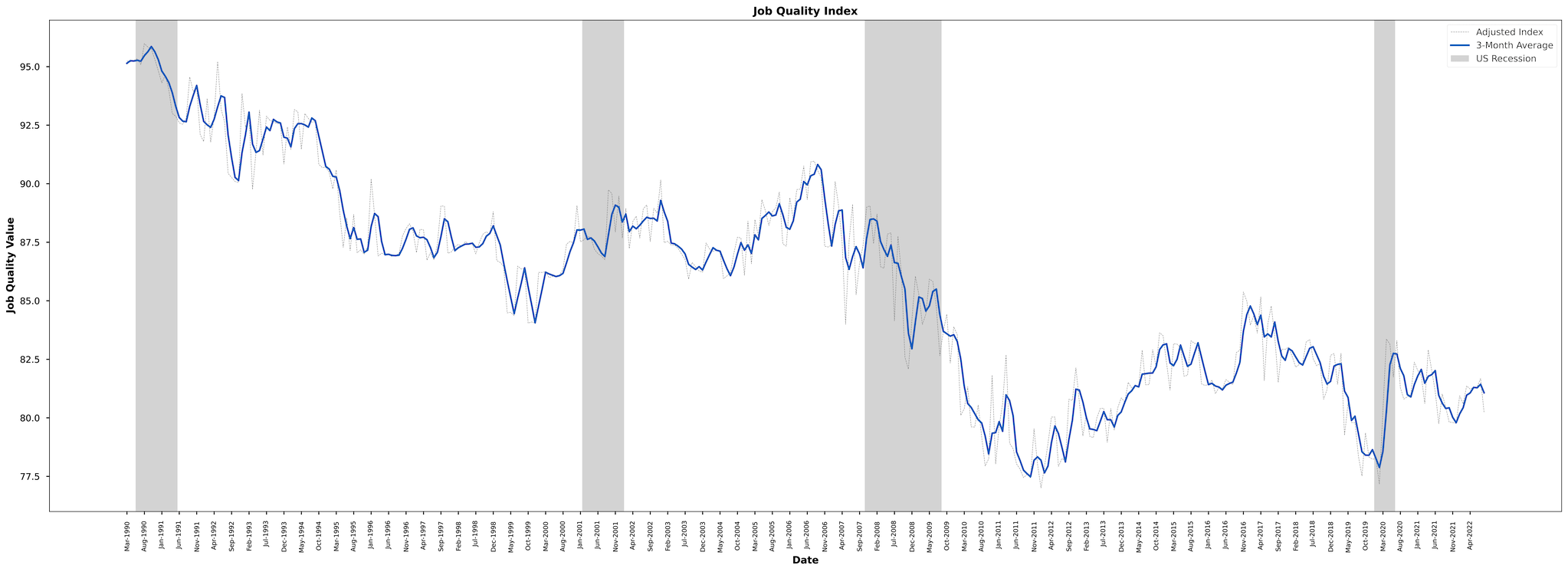WASHINGTON — The Coalition for a Prosperous America (CPA) today announced that the U.S. Private Sector Job Quality Index (JQI) fell 0.45% to 81.07 in August, as low-quality job additions exceeded high-quality additions.
Low quality jobs, i.e. jobs that pay weekly wages below the national average for all production and nonsupervisory workers, increased in the latest month, particularly in the restaurant and retail industry, bringing down the JQI. There were smaller increases in some high quality jobs in health care and transportation equipment manufacturing.
The average weekly wage for production and nonsupervisory workers came in at $935.24 in August, up 5.3% on the year-earlier level, still below the rate of consumer price inflation.
The Bureau of Labor Statistics reported today that the U.S. added 263,000 workers to nonfarm payrolls in September, while the unemployment rate fell to just 3.5%. However, the labor force participation rate fell slightly to 62.3%, suggesting wage and salary levels are not high enough to get people back to work. There are 11.6 million people either unemployed or not in the labor force but would like a job, according to today’s BLS report.
Manufacturing employment rose by 22,000 in August to reach a total of 12.889 million. The increase was dominated by motor vehicle manufacturing, up 8300 in the month and food manufacturing, up 7800.
“Low quality jobs continue to rise in the JQI report, as the economy recovers from the pandemic, while the stagnant participation rate in the government’s employment report shows millions of workers are opting to stay home rather than take the jobs on offer,” said CPA Chief Economist Jeff Ferry. “With core inflation at 6.3%, the Federal Reserve is likely to opt for a hefty 75 basis point interest rate increase at its next meeting, which is likely to put job growth into reverse at some point in the next six months.”
The Job Quality Index measures job quality for U.S. production and non-supervisory workers by comparing workers’ weekly wages to the mean weekly wage for all non-supervisory workers. Those jobs above the mean are classified as high-quality and those below the mean are low-quality. The JQI is down 14.5% from 1990 (see Figure 1), when the current data series begins, illustrating the aggressive growth in low-quality jobs, which are low-wage and often low-hour too.
Figure 1. Job Quality Index 1990-2022














